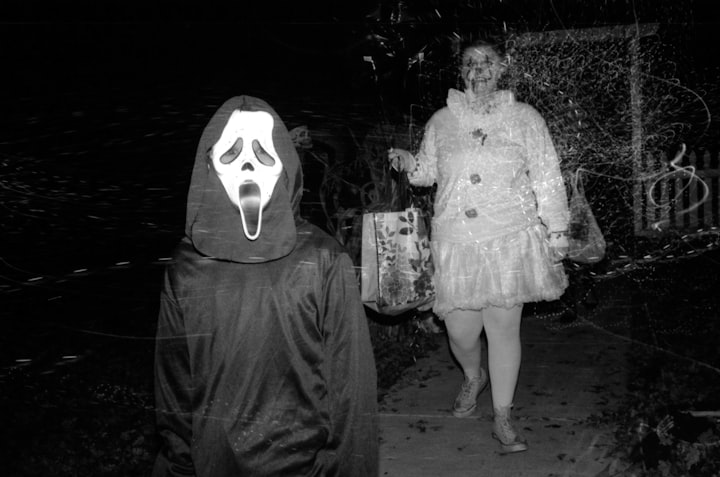
Wayne Williams was a controversial figure in the 1980s, as his name has been linked to two of the most mysterious and shocking unsolved homicides in the history of the United States: the Atlanta Child Murders. From 1979 to 1981, a total of 28 African American children, teenagers and young adults were brutally murdered around the Atlanta area. Eventually, these gruesome slayings and the subsequent police investigation led investigators to one man: Wayne Williams.
Williams was born in Atlanta and lived a comfortable, but at times strained, life with both of his parents. He was always a bright and industrious individual, branching out from school into print journalism and music production. He often told friends and family he wanted to be a millionaire, and did become a successful entrepreneur in the production of music and promotion.
When the child murders began to occur, Wayne was the first suspect the public thought of. Unfortunately for Wayne, police had created a task force to specifically manage and investigate these cases, known as “The Atlanta Child Murder Task Force”. This group of investigators had initially ruled out the possibility that a single person was responsible for these heinous acts.
These investigators were eventually able to link more than two dozen cases to the same killer, severely tightening the noose around Williams. After a lengthy and detailed investigation, it was concluded that Williams was the one responsible for almost all of the killings and he was arrested in 1982.
After his arrest, authorities had to find a way to prove that Williams was responsible for the deaths of the 28 victims. In March of 1981, the body of missing victim Nathaniel Cater was found in the Chatahoochee river. An autopsy was conducted and fibers from a carpet in Williams' car were found on Cater’s clothing. This became the incriminating evidence that was used to ultimately convict Williams of the murder of the 28 children.
The trial of Wayne Williams lasted two months, in which the jury struggled expressing to both themselves and the families of the victims that they had indeed found the right person guilty. In the end, Wayne Williams was found guilty and sentenced to two life sentences. Although many of the cases were never officially closed, police were sure that the Atlanta Child Murderer had been apprehended and justice had been served.
Since the trial and conviction, there have been mixed opinions on the matter of Wayne Williams’ guilt. Some evidence has been provided to suggest that murders continued after his arrest and that a larger group of individuals may have been responsible for the 28 deaths. However, today, Wayne Williams would be considered one of America’s most notorious serial killers and his name will forever remain linked to one of America’s most infamous unsolved murder cases.
Wayne Williams was a controversial figure in the 1980s, as his name has been linked to two of the most mysterious and shocking unsolved homicides in the history of the United States: the Atlanta Child Murders. From 1979 to 1981, a total of 28 African American children, teenagers and young adults were brutally murdered around the Atlanta area. Eventually, these gruesome slayings and the subsequent police investigation led investigators to one man: Wayne Williams.
Williams was born in Atlanta and lived a comfortable, but at times strained, life with both of his parents. He was always a bright and industrious individual, branching out from school into print journalism and music production. He often told friends and family he wanted to be a millionaire, and did become a successful entrepreneur in the production of music and promotion.
When the child murders began to occur, Wayne was the first suspect the public thought of. Unfortunately for Wayne, police had created a task force to specifically manage and investigate these cases, known as “The Atlanta Child Murder Task Force”. This group of investigators had initially ruled out the possibility that a single person was responsible for these heinous acts.
These investigators were eventually able to link more than two dozen cases to the same killer, severely tightening the noose around Williams. After a lengthy and detailed investigation, it was concluded that Williams was the one responsible for almost all of the killings and he was arrested in 1982.
After his arrest, authorities had to find a way to prove that Williams was responsible for the deaths of the 28 victims. In March of 1981, the body of missing victim Nathaniel Cater was found in the Chatahoochee river. An autopsy was conducted and fibers from a carpet in Williams' car were found on Cater’s clothing. This became the incriminating evidence that was used to ultimately convict Williams of the murder of the 28 children.
The trial of Wayne Williams lasted two months, in which the jury struggled expressing to both themselves and the families of the victims that they had indeed found the right person guilty. In the end, Wayne Williams was found guilty and sentenced to two life sentences. Although many of the cases were never officially closed, police were sure that the Atlanta Child Murderer had been apprehended and justice had been served.
Since the trial and conviction, there have been mixed opinions on the matter of Wayne Williams’ guilt. Some evidence has been provided to suggest that murders continued after his arrest and that a larger group of individuals may have been responsible for the 28 deaths. However, today, Wayne Williams would be considered one of America’s most notorious serial killers and his name will forever remain linked to one of America’s most infamous unsolved murder cases.






Comments
There are no comments for this story
Be the first to respond and start the conversation.